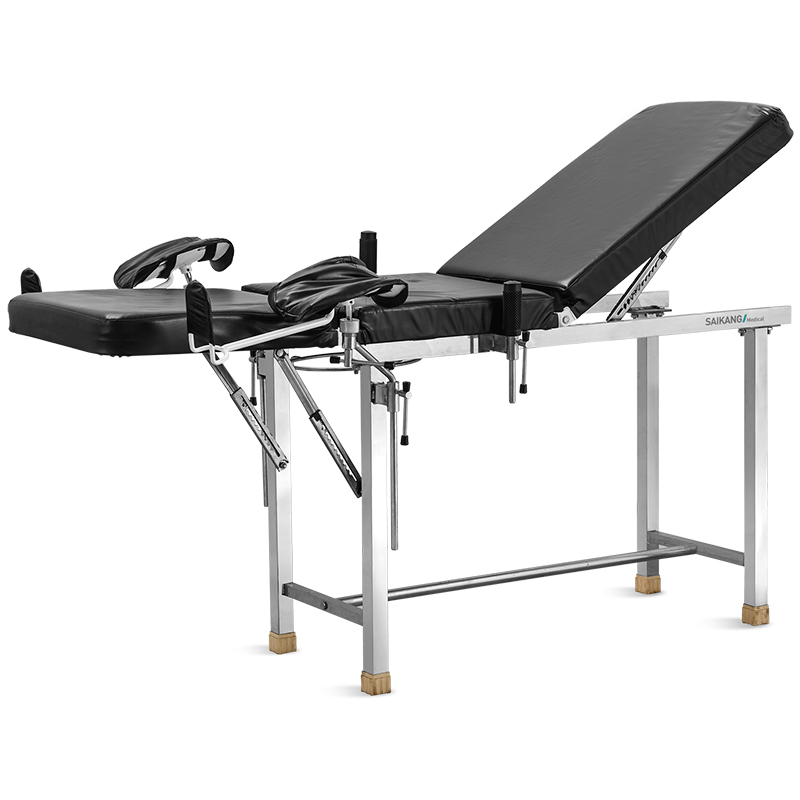Medical beds serve as much as simply furnishings. They are essential equipment that facilitates patients’ comfort, safety, and quicker recovery. Let’s examine the most common kinds of hospital beds used in medical settings.
Standard Hospital Beds
In the medical field, these are the most popular beds. Sections for the head, feet, and height can be individually adjusted. This allows medical personnel to adjust the bed to the patient’s needs. These beds are adaptable, reasonably priced, and beneficial for a wide range of illnesses.

Low Hospital Beds
Standard beds are higher off the ground than these. Additional safety features are present. For individuals who may trip or struggle with mobility, they are excellent. If a patient falls off their bed, the low height lessens their chance of damage. Patients who are elderly or physically disabled frequently utilize these beds.
Bariatric Hospital Beds
Larger patients may use these beds. They are broader than regular beds and have a higher weight capacity. For bariatric patients, this provides adequate comfort and support. The safety and dignity of people suffering from obesity depend on these beds.
ICU (Intensive Care Unit) Beds
ICU beds are for patients who require intensive medical treatment along with close observation. Modern features like integrated electronic controls, heart monitoring systems, and unique pressure redistribution surfaces are frequently seen on these beds. ICU beds prioritize the critical care needs, accessibility, and safety of the patient. In contexts involving critical care, they are indispensable.
Pediatric Hospital Beds
These beds are designed to accommodate newborns’ and kids’ unique demands. To create a kid-friendly atmosphere, they are often smaller and decorated with vibrant patterns. These beds may also have child-friendly accessories, height-adjustable settings, and safety rails. Young patients will receive the finest comfort and care thanks to this.
Maternity Beds
These beds aim to provide moms with support and comfort throughout labor, delivery, and the postpartum period. To assist with varying phases of labor, these beds frequently have movable settings. Comfort for the mother, ease of access for medical personnel, and safety for the mother and child are the main priorities of maternity beds.
Different patient groups and medical needs serve by the primary hospital bed types in the healthcare industry. Hospital beds, ranging from ordinary beds to speciality units for bariatric patients, pediatric care, and critical care settings, are vital for ensuring patient safety, comfort, and speedy recovery. To guarantee the best possible results for patients at every step of their medical care, healthcare professionals carefully choose and employ various kinds of hospital beds.
Looking at the Most Used Bed in Hospitals

Selecting the appropriate bed is crucial for healthcare. It facilitates patients’ comfort, safety, and recovery. Worldwide, hospitals have one bed that is utilized more than any other. See why this bed is so well-liked and how it benefits medical professionals and patients.
The Most Used Bed
In hospitals, the most common type of bed is the standard hospital bed. For patient care, these beds are crucial. They are utilized for a variety of purposes, including recuperation, rest, and medicinal therapies. Look into the benefits of standard beds for patient care and the reasons why so many hospitals employ them.
Why Standard Beds Are Great
Standard beds are widely used for a variety of reasons, one of which is their adaptability. The bed’s head, foot, and height are movable. This enables physicians to alter the bed to suit the requirements of each patient. As an illustration, they can lift the bed’s head to facilitate breathing for a patient. To assist a patient in getting in and out, they can also lower the bed.
Standard Beds Are Affordable and Easy to Find
The affordability and accessibility of standard beds contribute to their popularity. These are more widespread and less expensive than speciality beds like ICU or bariatric beds. Patients may now receive the care they require promptly without having to worry about whether the necessary equipment is available or will be too expensive.
Safety Features
Safety features are a standard feature on beds to prevent accidents and keep patients safe. Side rails to prevent falls locks to prevent the bed from sliding, and sturdy frameworks to support patient mobility are a few examples of these characteristics. Standard beds reduce the risk of injury and assist keep patients safe while they are in the hospital by emphasizing safety.
Comfort for Patients
In the medical field, patient comfort is critical. This happens when making standard beds. They frequently have features that promote relaxation and reduce discomfort, as well as comfortable mattresses and changeable settings. Comfort from a regular bed may make a patient feel lot better, whether they are recovering from surgery, managing a chronic disease, or receiving therapy.
Easy to Clean and Take Care Of
Being effective is crucial in hectic hospitals. Standard beds are simple to maintain and clean. Regular chores like cleaning, mattress replacement, and bed adjustment are made easy by their robust yet basic design. Infections are avoidable and patient safety stays up in hospitals because of this.
Fits Many Different Patients
Regardless of a patient’s size, age, or health, standard beds are often utilized for a wide range of patients. These beds are adaptable to each patient’s needs, whether they are little children or elderly seniors. Because of this, hospitals that provide care for a wide range of patients would do well by using standard beds.
Final Words
Ultimately, for a variety of reasons, the most common type of bed in hospitals is the regular hospital bed. It is inexpensive, has safety measures, is easily maintained, adaptable, pleasant, and suitable for a wide range of patient needs. Standard beds play a major role in helping patients recover in many different ways by providing a decent environment for medical treatments and rest..
 ผู้จัดจําหน่ายอุปกรณ์ทางการแพทย์มืออาชีพ
ผู้จัดจําหน่ายอุปกรณ์ทางการแพทย์มืออาชีพ
